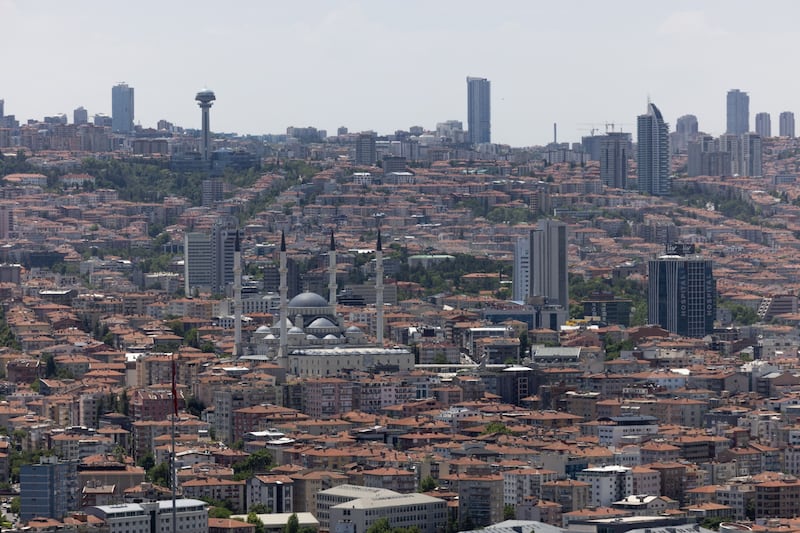Gulf countries on Thursday signed a pact with Turkey to start discussions on a free trade agreement to boost economic ties.
The deal to launch talks was signed between GCC Secretary General Jasem Mohamed Al Budaiwi and Omer Bolat, Turkey’s Minister of Trade, in Ankara.
The agreement is a “demonstration of the robust and strategic partnership” between the GCC countries and Turkey, Mr Al Budaiwi said in a statement.
"It also showcases the successful co-operation achieved at regional and international levels across various sectors, including commerce, economics and finance," the statement added.
Mr Al Budaiwi said the GCC bloc and Turkey shared a “mutual desire to expand trade, investment and co-operation”.
On Thursday, Turkey’s central bank also announced an interest rate increase in an attempt to tighten the monetary policy to control inflation, which has risen to 70 per cent in the last year. The Monetary Policy Committee, led by the newly appointed governor Fatih Karahan, raised its benchmark rate to 50 per cent from 45 per cent, the committee said.

Fitch Ratings this month upgraded Turkey’s credit rating on stronger fiscal policies and reduced financial risks. Its ratings were elevated one notch to B+ from B with a positive outlook, the rating agency said.
The six-member GCC bloc is signing new trade and economic deals globally.
In December, it signed a free trade agreement with South Korea to boost trade and economic ties between the GCC and Seoul. The GCC signed a similar agreement with Pakistan in September.
It is also in talks for an FTA with the UK.
Mr Al Budaiwi said the GCC countries are actively engaged in free trade negotiations with other countries to create new trade opportunities and boost economic co-operation regionally and globally.
This initiative will cultivate new markets for goods and services originating from the GCC markets, broaden income streams and stimulate economic growth, he added.
Economies in the GCC have recovered from the Covid-19 pandemic on growth in their oil and non-oil sectors, with growth momentum set to pick up in the coming years amid diversification efforts.
The region is expected to post growth of 3.6 per cent this year and 3.7 per cent in 2025, the World Bank said in November.
That is much higher than the lender's forecast of 2.4 per cent growth globally for this year.
Growth in the bloc is mainly being led by the non-oil sector, which is projected to expand 3.4 per cent in the medium term, the World Bank said.
The GCC, which has a gross domestic product of $2.3 trillion a year, is moving towards being a $3 trillion GDP per annum economic zone by 2030, rising to $6 trillion by 2050, said Sheikh Salman bin Khalifa Al Khalifa, Bahrain's Minister of Finance and National Economy, during a panel discussion in Davos in January.







